Papers by David Waddington
Research Articles, 2020
This essay explores the possibility that a particular type of video game—real-time strategy games... more This essay explores the possibility that a particular type of video game—real-time strategy games—could have worrisome educational impacts.In order to make this case, I will develop a theoretical framework originally advanced by French social critic Paul Virilio. In two key texts, Speed and Politics (1977) and “The Aesthetics of Disappearance” (1984), Virilio maintains that society is becoming “dromocratic” – determined by and obsessed with speed. Extending Virilio’s analysis, I will argue that the frenetic, ruthless environment of real-time strategy games may promote an accelerated, hypermodern way of thinking about the world that focuses unduly on efficiency.
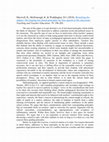
(2018). Broaching the subject: Developing law-based principles for free speech in the classroom. ... more (2018). Broaching the subject: Developing law-based principles for free speech in the classroom. Teaching and Teacher Education, 70: 196-203. The aim of this paper is to put forward a set of law-based principles which define the limits of educators' free discretion to address contested social and political issues in the classroom. The specific type of case we have in mind arises when teachers' purpose is to use the classroom as a place to help young people learn how to discuss controversial matters, and where the choice of topic or pedagogical approach meets with resistance and disagreement from employers, pupils' parents or other stakeholders. Teachers face multiple barriers when dealing with controversial issues in class. These include a sense that students lack the ability or maturity to engage in meaningful political discussions, concerns about creating situations in which some students might feel uncomfortable or unsafe, and teachers' lack of confidence in their own ability to manage the uncertainties that arise when students are invited to air multiple and competing views about. However, the specific barrier with which this paper is concerned is the possibility of sanctions in the workplace as a result of raising controversial issues in class. The threat or imposition of sanctions is sometimes necessary, but it can also have a chilling effect on the reasonable exercise of teachers' professional autonomy and their capacity to provide their students with educational experiences favorable to the development of democratic values and competencies. As scholars who are committed to teacher autonomy and the levels of teacher curricular free speech which accompany it, we deplore what we see as the ongoing erosion of these prerogatives. Hence, our aim in what follows is to chart the current limits and possibilities of teachers' discretion to broach controversial topics. Methodologically, we applied qualitative content analysis (see Krippendorf, 1989; Stemler, 2001) to key U.S. and Canadian jurisprudence and secondary legal writings on teacher free speech to uncover patterns in judges' views on the considerations that need to be taken into account when thinking about whether pedagogical discretion has been exercised in a reasonable and responsible way. We found judges returning consistently to four rights and interests that need to be balanced with teachers' constitutional right to free expression—namely, the State's interest in determining the content taught in schools, the rights of pupils as a captive audience, the right of students to benefit from a stable learning environment, and the interest of maintaining public confidence in the public school system. We argue that these considerations entail four corresponding principles that set reasonable limits on teachers' right to curricular free speech: alignment with the official curriculum, even-handedness, age appropriateness, and avoidance of inflammatory material. Within these limits, however, there is also space for teacher autonomy. We argue that it is not legitimate to prevent teachers from raising and discussing a sensitive topic with their students in class as long as it is done in a way that respects these guiding principles. Before we begin this exercise, a word of caution is in order. For reasons discussed in detail below, adherence to these principles on the part of a teacher by no means guarantees legal protection in the case of a conflict between a teacher and their employer

Theory and Research in Education, 2015
This article considers the question of whether policies that propose to forbid public officials, ... more This article considers the question of whether policies that propose to forbid public officials, most notably teachers, from wearing religious clothing in the classroom can be justified by political principles of secularism – specifically, the principle of state neutrality and the principle of state autonomy from religious influence. Two prominent arguments on behalf of an affirmative answer to this question are identified and evaluated, ultimately casting doubt on the cogency of prohibitionist arguments. The claim is then advanced that secular principles are most compellingly understood in educational contexts as principles of professional ethics – that is, as grounds for teacher reflection. To support this claim, we conclude by presenting two scenarios in which teachers face difficult decisions about whether to wear or remove an otherwise obligatory religious symbol. In this discussion, the importance of balance considerations of religious conscience with the value of public trust...
Revue des sciences de l'éducation, 2020
Quelles sont les limites raisonnables encadrant l’enseignement de sujets controverses ? L’article... more Quelles sont les limites raisonnables encadrant l’enseignement de sujets controverses ? L’article suivant vise la reponse a cette question et propose, pour ce faire, de degager certains principes juridiquement fondes qui guideront la pratique professionnelle du corps enseignant. L’analyse de la jurisprudence pertinente du Canada et des Etats-Unis, ainsi que de documents legaux secondaires nous a permis de relever les elements recurrents sur lesquels se fondent les juges pour evaluer si la liberte d’expression pedagogique a ete exercee de facon raisonnable et responsable. Notre analyse degage quatre principes delimitant l’exercice de la liberte d’expression en enseignement : l’alignement avec le programme, l’impartialite, le non-usage de propos possiblement incendiaires et la pertinence du contenu en fonction de l’âge.
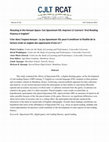
Canadian Journal of Learning and Technology
This study examined the effects of Spaceteam ESL, a digital shouting game, on the development of ... more This study examined the effects of Spaceteam ESL, a digital shouting game, on the development of oral reading fluency (ORF) among 71 English as a second language (ESL) students in three primary and secondary schools in Mombasa, Kenya. Following a mixed-methods approach for data collection and analysis, we pre-tested and post-tested the participants on their ability to read aloud efficiently (speed) and accurately (accuracy) in three tasks: (1) phrases extracted from the game; (2) phrases not related to the game; and (3) a short anecdote. Paired-samples t-tests results revealed that, as hypothesized, participants who played Spaceteam ESL improved their ORF on measures of speed on all tasks, possibly because of the fast-paced nature of the game. However, no significant differences were observed in terms of accuracy due to a ceiling effect: the participants had already mastered the intricacies of the letter-to-sound rules of English orthography. Overall, these findings corroborate our ...
Future-proof CALL: language learning as exploration and encounters – short papers from EUROCALL 2018, 2018
This study explores the pedagogical use of Astronautes Français Langue Seconde (Astronautes FLS),... more This study explores the pedagogical use of Astronautes Français Langue Seconde (Astronautes FLS), a cooperative digital game, in second/foreign language (L2) French teaching. It has two goals: (1) to introduce Astronautes FLS and its conceptualization, and (2) to report the results of a feasibility study in which we examined the pedagogical viability of the game as well as learners' perceptions of the game, across two proficiency groups. The results of the feasibility study suggest that the game is positively perceived by the participants in many factors known to contribute to language learning (e.g. it increased their motivation to learn).
Encyclopedia of Teacher Education, 2019

CALL communities and culture – short papers from EUROCALL 2016, 2016
This study examines the development of oral fluency in a Computer-Mediated Communication (CMC) en... more This study examines the development of oral fluency in a Computer-Mediated Communication (CMC) environment that uses a 'shouting' digital game as a pedagogical tool: Spaceteam ESL 4. Spaceteam ESL is a game for mobile devices that involves time-sensitive aural exchanges among players (English learners), with great potential to promote fluency development (via speed) in a non-threatening environment (mediated by the game, a CMC tool). 20 high-beginner/low-intermediate English as a Second Language (ESL) learners participated in the study, divided into two groups: an experimental group (n=11), which played the game for 15 minutes as a warm-up in class for a period of six weeks, and the control group (n=9), which was engaged in 'traditional' classroom activities such as info gap, story retelling, and other interactive activities for the same period of time. The study followed a mixedmethods design with pre-, post-, and delayed post-tests to measure developments in oral fluency (measured via the computation of number of syllables per second). The results suggest that mobile games such as Spaceteam ESL have the potential to assist in fluency development, but further investigation is needed.

Critical CALL – Proceedings of the 2015 EUROCALL Conference, Padova, Italy, 2015
Digital gaming in education is an area that has been rapidly expanding in popularity and is gradu... more Digital gaming in education is an area that has been rapidly expanding in popularity and is gradually being applied to second language (L2) contexts (Godwin-Jones, 2014). Mobile gaming in particular offers the benefits of digital gaming while also offering the portability and accessibility of mobile devices (Ogata & Yana, 2003; Stockwell, 2010). This pilot study examines student and teacher perceptions of a mobile team-building game entitled Spaceteam ESL. Although not created as an educational game, Spaceteam ESL allows students to interact in the target L2 (English) while providing a comfortable and enjoyable environment to practice the language. We hypothesize that its regular use may contribute to the development of oral fluency in the target language, as it engages learners in an activity that encourages them to reuse the language that they already know in an automatized (fast) but comprehensible manner. In general, our analyses indicate that users and their instructor perceive Spaceteam ESL positively, as a fun and effective way to practice English.
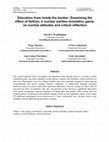
This mixed-methods study investigates the hypothesis that playing Defcon, a nuclear warfare simul... more This mixed-methods study investigates the hypothesis that playing Defcon, a nuclear warfare simulation game, can affect attitudes toward nuclear weapons and stimulate critical reflection on this issue. Participants were 141 college students who were randomly assigned to game playing (experimental) and article reading (control) conditions. A multivariate repeated measures factorial analysis revealed statistically significant differences between groups for three pairs of pre-/post-test items. In addition, total pre-and post-test scores showed a significant interaction with group assignment, reported frequency of game play and gender, with women and less frequent gamers exhibiting greater attitude changes. In the second, qualitative phase of the study, 20 additional participants were interviewed to better understand how playing Defcon may stimulate critical reflection about nuclear weapons.

Educational Studies, 2011
This article provides a reconsideration of the intellectual altercation between John Dewey and Le... more This article provides a reconsideration of the intellectual altercation between John Dewey and Lewis Mumford in the 1920s, and a sketch of some educational implications that follow this reconsideration. Although past scholarship has tended to focus on ways in which the altercation obscured similarities in their thought, we consider whether important differences were also obscured, particularly regarding their outlook on science and technology, their potential place in society, and their ideas about the best means to positive social change. We also consider how these differences might play out in philosophy of education/educational practice, concluding that Mumford's commitment to regionalism can augment Dewey's philosophical vision while also helping deal with pressing contemporary social and educational needs. Although John Dewey needs no introduction to most readers of this journal, it is possible that the same cannot be said about Lewis Mumford, because educational themes were not often prominent in Mumford's work. A public intellectual and self-proclaimed "anti-expert," Mumford wrote in many areas and made a name for
Educational Theory, 2015
Critics like Leonard Waks argue that video games are, at best, a dubious substitute for the rich ... more Critics like Leonard Waks argue that video games are, at best, a dubious substitute for the rich classroom experiences that John Dewey wished to create and that, at worst, they are profoundly miseducative. Using the example of Fate of the World, a climate change simulation game, David Waddington addresses these concerns through a careful demonstration of how video games can recapture some of the lost potential of Dewey's original program of education through occupations. Not only do simulation games realize most of the original goals of education through occupations, but they also solve some of the serious practical problems that Dewey's curriculum generated. Waddington concludes the essay with an analysis of Waks's critiques and some cautionary notes about why it is important to be temperate in our endorsement of educational video gaming.
Canadian Journal of Science, Mathematics and Technology Education, 2011
Science, technology, society, and environment (STSE) themes occupy a prominent place in the refor... more Science, technology, society, and environment (STSE) themes occupy a prominent place in the reformed Québec junior high school science curriculum. However, studies have demonstrated that STSE curriculum reforms are often not translated into meaningful changes in classroom practice. Although there are multiple possible reasons for this gap between curriculum theory and teaching practice, one reason that is especially worthy of
Educational Theory, 2012
Abstract. In this essay, Bruce Maxwell, David Waddington, Kevin McDonough, Andrée-Anne Cormier, a... more Abstract. In this essay, Bruce Maxwell, David Waddington, Kevin McDonough, Andrée-Anne Cormier, and Marina Schwimmer compare two competing approaches to social integration policy, Multiculturalism and Interculturalism, from the perspective of the issue of the state funding and regulation of conservative religious schools. After identifying the key differences between Interculturalism and Multiculturalism, as well as their many similarities, the authors present an explanatory analysis of this intractable policy challenge. Conservative religious ...

CALL and complexity – short papers from EUROCALL 2019, Dec 9, 2019
This study examined whether the pedagogical use of Spaceteam ESL (English as a Second Language), ... more This study examined whether the pedagogical use of Spaceteam ESL (English as a Second Language), a digital shouting game, could contribute to the development of Oral Reading Fluency (ORF) among 71 English students in secondary schools in Mombasa, Kenya. Following a mixed-methods approach for data collection and analysis, we pre-and post-tested the participants on their ability to read aloud efficiently (speed) and accurately (accuracy) in three tasks: (1) phrases extracted from the game; (2) phrases not related to the game; and (3) an anecdote. Our findings indicate that participants who played Spaceteam ESL improved their ORF on all measures of speed, but no significant differences were observed in terms of accuracy. Overall, these findings corroborate our hypothesis that some of the affordances of Spaceteam ESL (e.g. speed reading) would contribute to the development of some aspects of ORF.
Les ateliers de l' …, Jan 1, 2012
Montréal. Il a pour mission la promotion et la valorisation de la recherche. Érudit offre des ser... more Montréal. Il a pour mission la promotion et la valorisation de la recherche. Érudit offre des services d'édition numérique de documents scientifiques depuis 1998. Les ateliers de l'éthique / The Ethics Forum, vol. 7, n° 1, 2012, p. 24-44. Pour citer cet article, utiliser l'information suivante : URI: http://id.erudit.org/iderudit/1009409ar Note : les règles d'écriture des références bibliographiques peuvent varier selon les différents domaines du savoir.
Teaching and Teacher Education, 2018
The analysis revealed four principles that set limits on teachers' right to classroom free speech... more The analysis revealed four principles that set limits on teachers' right to classroom free speech. The first two principles are curriculum alignment and even-handedness. The second two principles are age appropriateness and avoidance of inflammatory material. These four principles are a useful guide for teachers and teacher educators. The protections afforded to teacher free speech remain limited, so caution is warranted.
Philosophical Inquiry in Education, 2020
This essay explores the possibility that a particular type of video game-real-time strategy games... more This essay explores the possibility that a particular type of video game-real-time strategy games-could have worrisome educational impacts. In order to make this case, I will develop a theoretical framework originally advanced by French social critic Paul Virilio. In two key texts, Speed and Politics (1977) and "The Aesthetics of Disappearance" (1984), Virilio maintains that society is becoming "dromocratic"-determined by and obsessed with speed. Extending Virilio's analysis, I will argue that the frenetic, ruthless environment of real-time strategy games may promote an accelerated, hypermodern way of thinking about the world that focuses unduly on efficiency.
Philosophy of Education and the Work of Teachers, 2019
In this chapter, I argue that the status of Dewey scholarship in schools of education is likely t... more In this chapter, I argue that the status of Dewey scholarship in schools of education is likely to decline. To advance this hypothesis, I begin with an account of the factors behind Dewey’s ascent in North American schools of education. I then proceed to review some existing critiques of Dewey, and I explain how they do not capture the key problem with Dewey's philosophy, which is its strong commitment to modernity. Once this core argument is laid out, I explain how this commitment to modernity, along with the progressive movement’s current difficulties, indicate some difficult times ahead for Dewey scholarship.
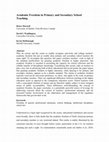
Theory and Research in Education, 2019
Why do society and the courts so readily recognize university and college teachers’ academic free... more Why do society and the courts so readily recognize university and college teachers’ academic freedom but just as readily deny primary and secondary school teachers the same right? To investigate this question, this paper considers teachers’ work in light of the standard justifications for granting academic freedom in higher education: that academic freedom is essential to promoting the capacity for critical reflection and the transfer of disciplinary knowledge. Considering the key role that society calls upon teachers to play in advancing both of these educational and social goods, the paper argues that granting academic freedom in higher education, while denying it for primary and secondary teachers, appears to be a double standard. The claims to academic freedom typically reserved for university professors, we show, also apply to the work of primary and secondary teachers. There are significant differences between teaching in the higher education sector as opposed to the compulsory education sector. School teachers work with a conscripted clientele of minors and are therefore rightly subject to more stringent norms of public accountability. These differences notwithstanding, the concept of academic freedom, the paper concludes, is a potentially powerful source of leverage for addressing concerns about the erosion of teachers’ professional autonomy and for increased teacher involvement in the elaboration and management of the regulatory framework that governs their work.
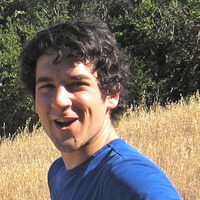
Uploads
Papers by David Waddington